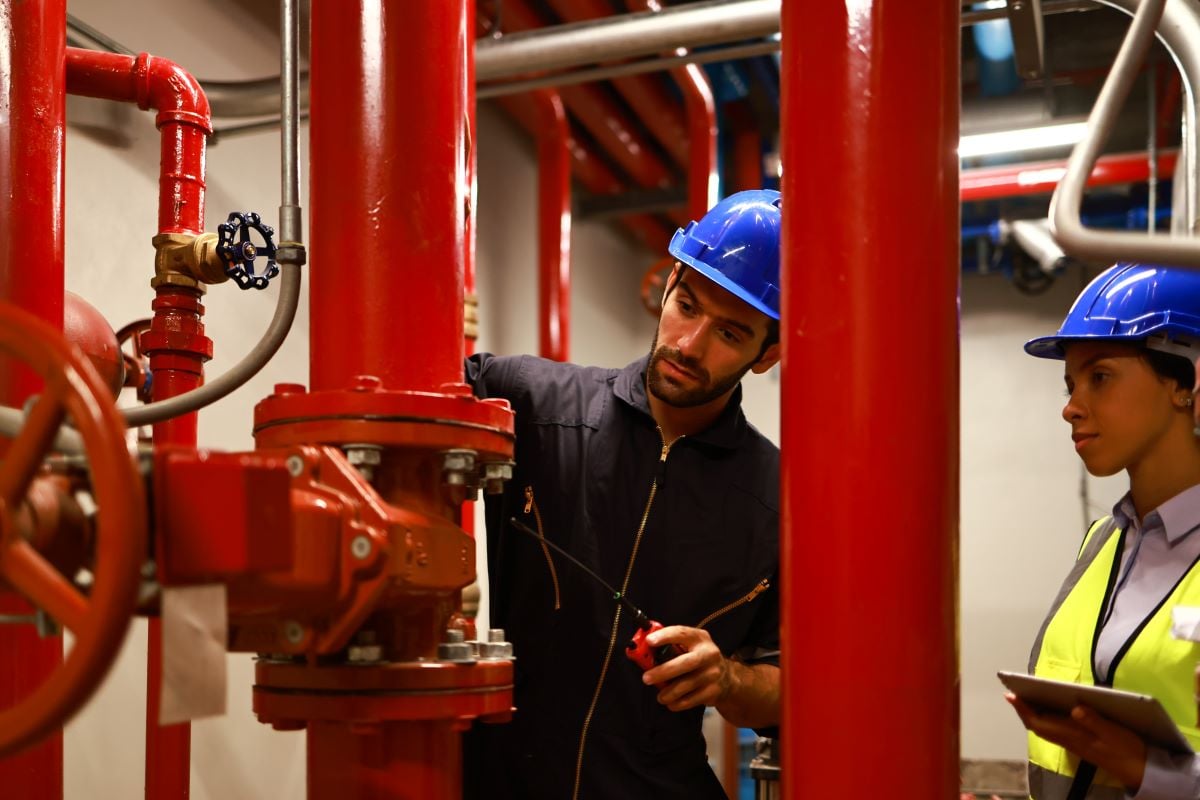
Fire suppression systems are a crucial component of fire safety measures in various environments. However, simply installing a fire suppression system is not enough to guarantee reliable protection. Regular maintenance of these systems is essential to ensure their proper functioning and effectiveness when it comes to controlling and extinguishing fires. In this blog post, we will explore the importance of fire suppression maintenance and its role in ensuring reliable fire protection.
System Reliability
Regular maintenance of fire suppression systems is vital to ensure their reliability. Over time, components such as sprinkler heads, control panels, valves, and pipes can deteriorate or become damaged. Maintenance activities, such as inspections, testing, and cleaning, help identify and address any issues promptly, ensuring that the system remains fully operational and ready to respond in case of a fire emergency.
Compliance with Regulations
Fire suppression maintenance is often a requirement mandated by local fire codes and regulations. Authorities may require regular inspections and testing to ensure compliance with safety standards. By adhering to these regulations and maintaining proper documentation of maintenance activities, building owners and managers can demonstrate their commitment to fire safety and avoid potential penalties or legal complications.
Early Detection of System Faults
Regular maintenance allows for the early detection of any faults or malfunctions in the fire suppression system. Through inspections and testing, technicians can identify issues such as leaks, clogs, or faulty components. Detecting these problems early on enables timely repairs or replacements, minimizing the risk of system failure during a fire incident.
Optimal System Performance
Maintenance activities, such as cleaning sprinkler heads, checking pressure levels, and testing alarm systems, help optimize the performance of fire suppression systems. Regular inspections ensure that the system is free from obstructions or debris that could hinder its effectiveness. The system can perform at its best when it matters most by maintaining proper pressure levels and ensuring functional alarms and control panels.
Extended System Lifespan
Proper maintenance significantly extends the lifespan of fire suppression systems. Regular inspections, cleaning, and preventive maintenance help prevent premature wear and tear, corrosion, or deterioration of system components. By addressing minor issues promptly, maintenance activities contribute to the overall longevity and durability of the system, providing reliable fire protection for years to come.
Peace of Mind
Regular fire suppression maintenance offers peace of mind to building owners, managers, and occupants. Knowing that the system is regularly inspected, tested, and well-maintained provides reassurance that it will function as intended in case of a fire emergency. This peace of mind enhances overall fire safety awareness and fosters a sense of security within the building or premises.
Prioritizing Safety
Fire suppression maintenance is a critical aspect of ensuring reliable fire protection. By prioritizing regular inspections, testing, and preventive maintenance, building owners and managers can maintain the reliability and effectiveness of their fire suppression systems. Compliance with regulations, early detection of system faults, optimal performance, extended system lifespan, and peace of mind are all benefits of proper maintenance. Make sure you are in compliance by contacting a Koorsen Fire & Security professional!


